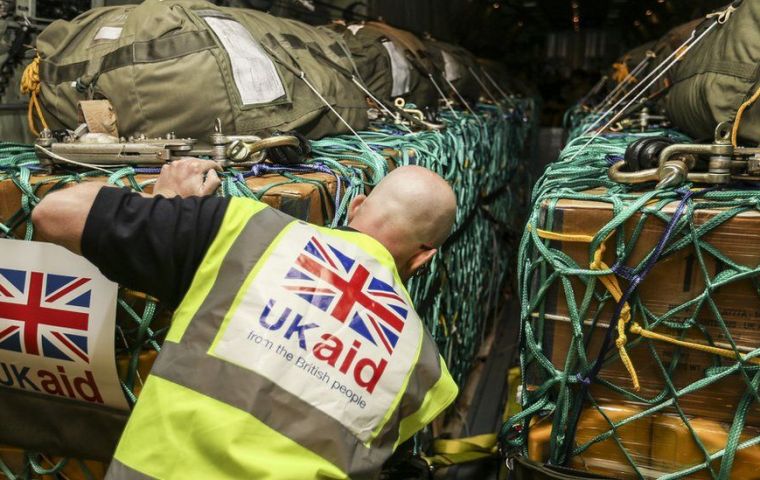MercoPress. South Atlantic News Agency
Vote in parliament to reverse UK's decision to cut overseas aid
 In 2020 UK's budget deficit was nearly £300 billion, 14% of GDP and in March government forecasted it did not expect spending to reach a balance before 2025
In 2020 UK's budget deficit was nearly £300 billion, 14% of GDP and in March government forecasted it did not expect spending to reach a balance before 2025 The British parliament will vote this Tuesday on a reverse decision to cut the United Kingdom's overseas aid. Chancellor of the Exchequer Sunak addressed a statement to parliament on Monday that the decision to limit foreign aid would be reversed once the UK no longer needs to borrow to fund daily needs and public debt begins to fall.
Last November Sunak announced that it would cut aid spending to 0.5% of national income from 0.7%, breaking a 2019 pre-election commitment though still leaving overseas aid spending more generous than in most rich nations.
Last year Britain's budget deficit was nearly £300 billion, or 14% of GDP and in March government forecasted it did not expect the day to day spending to reach a balance before 2025.
The leader of the House of Commons, Jacob Rees-Mogg, said the government would allow parliament to vote on whether to restore aid funding to 0.7% of national income, after previously blocking a stand-alone vote on the policy decision.
“Does this House wish to see the public finances kept under reasonable control ...? Or, on the other hand, do we want to hard-press our hard-pressed taxpayers even further? That will be the question for the debate tomorrow,” Rees-Mogg told parliament on Monday.
Prime Minister Boris Johnson's Conservative government has an 82-seat majority in parliament and normally has little difficulty passing legislation. However, a number of Conservative lawmakers have voted with opposition parties during previous attempts to reverse the cut.
Conservative former Prime Ministers Theresa May and David Cameron, as well as church leaders and charities all criticized the cut, which May said would hurt the world's poorest as well as Britain's reputation while saving relatively little money.
In effect, once the news spread, the Bill and Melinda Gates Foundation and other organizations such as the Children's Investment Fund Foundation (CIFF), the ELMA Foundation and the Open Society Foundation pledged £93m to a one-year plan to help replace the cuts in the UK's aid budget. The funding it was reported would target projects tackling preventable diseases and family planning.




Top Comments
Disclaimer & comment rulesCommenting for this story is now closed.
If you have a Facebook account, become a fan and comment on our Facebook Page!